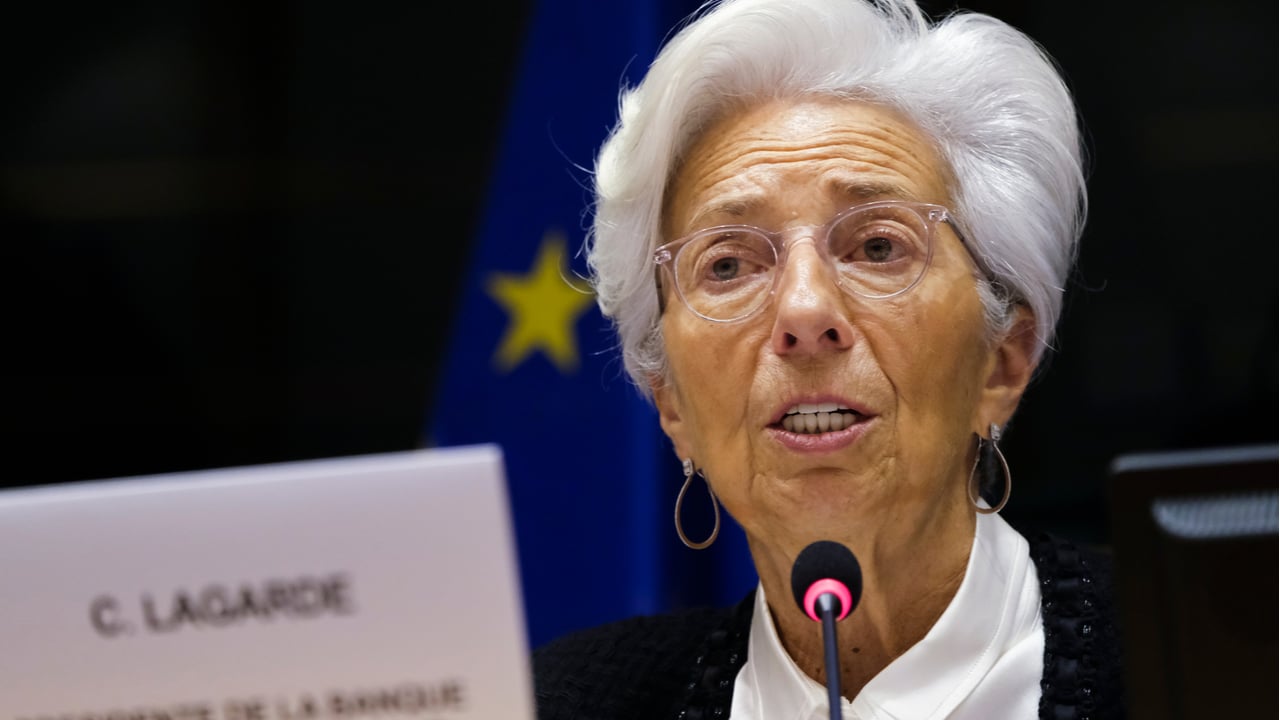
President of the European Central Bank Christine Lagarde has insisted that unlike a digital euro, cryptocurrency has no underlying asset. It should be regulated to prevent people from losing their life savings by speculating on crypto assets, the top ECB official has suggested.
Cryptocurrency Is ‘Worth Nothing,’ ECB Governor Claims
The head of the eurozone’s monetary authority, Christine Lagarde, maintains that cryptocurrencies are “based on nothing,” and is concerned about people “who have no understanding of the risks, who will lose it all and who will be terribly disappointed, which is why I believe that that should be regulated.”
Speaking to Dutch TV, Lagarde admitted she is skeptical about the value of crypto assets, as opposed to a central bank digital currency (CBDC) such as the digital euro, which the European Central Bank (ECB) is planning to issue within the next few years. Regarding cryptocurrency, she also stated:
My very humble assessment is that it is worth nothing, it is based on nothing, there is no underlying asset to act as an anchor of safety.
The top ECB executive made the comments amid difficult times for crypto markets, when major coins like bitcoin (BTC) and ether (ETH) are down 50% from their peak prices in 2021, Bloomberg reported. Cryptocurrencies are also facing mounting pressure and increasing scrutiny from regulators around the world, often citing threats to the financial system.
“The day when we have the central bank digital currency out, any digital euro, I will guarantee — so the central bank will be behind it and I think it’s vastly different than many of those things,” Christine Lagarde elaborated. The governor noted she doesn’t hold any crypto assets but admitted one of her sons has invested in crypto against her advice and she follows them “very carefully.”
Lagarde’s statements also come after other ECB officials have already expressed similar concerns. In April, Executive Board Member Fabio Panetta ramped up the bank’s anti-crypto rhetoric, comparing the rise of crypto assets to the 2008 subprime mortgage crisis and the Wild West’s gold rush, while calling for global regulations.
More recently, Panetta said the digital euro could become a reality by 2026, setting a time frame for its launch. The project is currently in its investigation phase and as the ECB is now stepping up engagement with stakeholders, the realization phase could begin at the end of 2023.
What’s your opinion about the ECB’s stance on cryptocurrencies? Share your thoughts on the subject in the comments section below.
Comments
Post a Comment